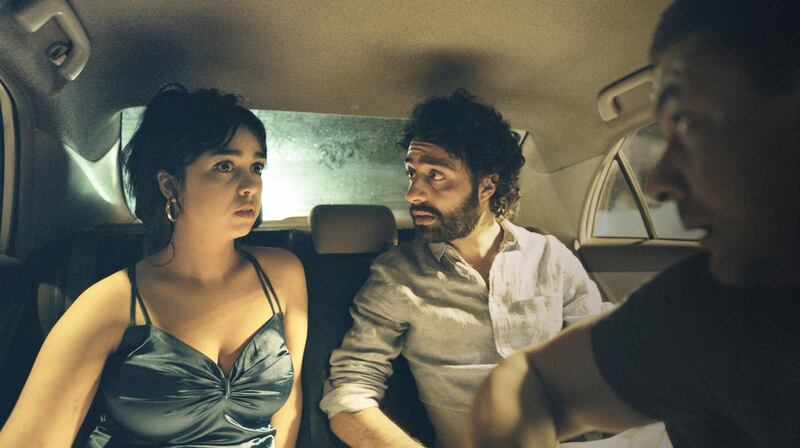A young female student is gang-raped by a group of local cops, then thrown into a nightmare of bureaucracy, corruption and misogyny as she struggles to report the incident in Kaouther Ben Hania's brave and harrowing follow-up to last year's Zaineb Doesn't Like the Snow.
It is subject matter rarely dealt with so unflinchingly in Tunisian cinema, or indeed the Arab world in general, and Ben Hania deserves credit for examining topics that could see her upsetting social and religious conservatives in her homeland. At one point Youssef (Zrelli) asserts “this whole country is a prison”.
In the opening scenes, we meet Mariam (Al Ferjani), a student who has organised a party for her peers. She is quite a prim-and-proper soul, but after an accident in which her conservative dress is torn, she is forced to borrow a much slinkier number from a friend.
The relevance of Mariam’s attire is never really debated in the film, rather acting as a subtle nod to sexist perceptions that a woman’s style can be somehow used to judge her moral worth.
At the party, Mariam meets the handsome Youssef, and the pair step out for a walk. Again, taboo in conservative Tunisian society, though hardly an action that justifies the ordeal Mariam is about to endure under any cultural code.
The film is in nine chapters, each shot in a single, long, sweeping take – a stylistic device that works on the whole, making us feel as we are really with Mariam as she embarks on her dreadful journey.
As Chapter Two begins, we find a distraught Mariam running away from her nightmare. The initial assumption is that the suave Youssef is the villain, but the reality is far worse, and only going to get more horrific.
Mariam can't check into a medical centre without her ID, which is in the bag she dropped in the police car where she was violated, and even with her ID, she would need a letter from the local police station – the very local police station that is home to her attackers – to confirm the crime before she could be examined. The ordeal goes on through the full nine chapters, some kind of grim adaptation of Kafka's The Trial with sexual assault adding new depths of horror to our protagonist's helpless situation and indifference at every level of Tunisian society, from police to hospital staff and the media.
____________________
Read more from Diff:
[ 5 most anticipated films at this year's festival ]
[ A beginner's guide to this year's festival ]
[ Emirati cinema takes centre stage at this year's festival ]
____________________
These are very real issues that are by and large undiscussed in the region. Having originally seen the film with a largely western audience at the Dublin Arab Film Festival, it will be fascinating to see how it is received by a regional audience for whom the events portrayed may be closer-to-home, rather some exotic foreign horror.





